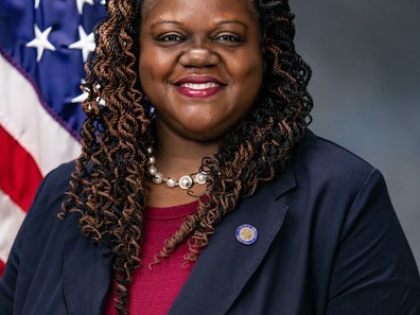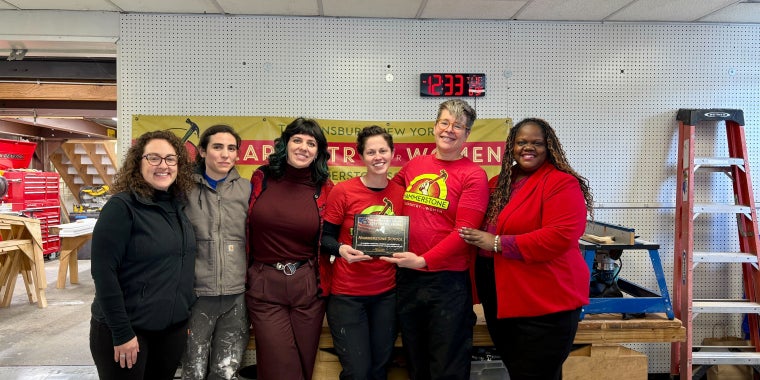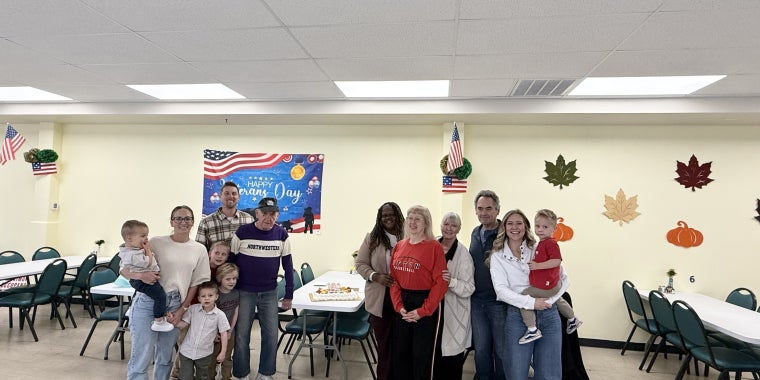
Senator Lea Webb and Colleagues Hold Joint Public Hearing to Investigate Widespread Issues with the Consumer Directed Personal Assistance Program (CDPAP) Transition
August 22, 2025
(Binghamton, NY)- Yesterday, State Senator Lea Webb joined colleagues to hear testimony from consumers and providers about the Consumer Directed Personal Assistance Program (CDPAP) transition. Organized by NY Senate Committee on Health Chair, Senator Gustavo Rivera and Committee on Investigations & Government Operations Chair, Senator James Skoufis, the joint public hearing provided an opportunity for lawmakers to hear from stakeholders across New York State, including healthcare experts, consumer advocates, fiscal intermediaries, enrollees, and enrollees’ personal care assistants, on the issues they are facing related to this transition.
Said State Senator Lea Webb, “The Consumer Directed Personal Assistance Program (CDPAP) provides essential health care services for some of our most vulnerable community members. The management of this crucial program by PPL has been filled with significant problems and is failing in delivering health care services through continued confusion for the home care workers and putting the health and well being of care-recipients at risk. My office continues to hear heartbreaking stories from CDPAP consumers and home health care workers alike about how this transition has impacted our most vulnerable neighbors. I am disappointed and very concerned about the lack of transparency and accountability we saw from the Department of Health Commissioner James McDonald and PPL Vice President Patty Byrnes at our publishing hearing. The State can and must do better for the health and quality of life of our residents.”
During Thursday’s hearing, Senator Lea Webb asked McDonald how the state is ensuring that PPL performs the services that the state is paying it for. McDonald responded that there are accountability mechanisms, but would not list any, replying “It’s in the contract, and I’m not sure if that part of the contract is public, so I’m not sure I can give those examples.”
Video of the hearing and a full list of participants and written testimony are available here.
Webb also published an op-ed on Thursday morning in the Press & Sun Bulletin, calling for the need to restore choice and dignity to New York’s CDPAP program. In the piece, Webb writes, “We must immediately restore local providers to CDPAP and protect the personal assistants families depend on. We must end this failed experiment before more damage is done. The lives and dignity of our neighbors depend on it.”
Background:
Last year, Governor Hochul overhauled New York’s Consumer Directed Personal Assistance Program (CDPAP), which provides home care services to approximately 250,000 New Yorkers. On September 30, 2024, Governor Hochul announced that the Georgia-based company Public Partnership LLC (PPL) would serve as the program’s fiscal intermediary, replacing approximately 600 smaller companies that administer the CDPAP program on behalf of thousands
On February 11, at the Joint Legislative Budget Hearing on Health/Medicaid, the State revealed that only 22,000 New Yorkers, out of 280,000, had fully completed their enrollment with PPL.
A state Health Department spokesperson said that as of last week, 139,000 consumers have completed the transition out of the nearly 165,000 who have started or completed the process. The agency said 55,000 consumers are in the process of transitioning out of CDPAP to other home care programs covered by Medicaid, and roughly 170,000 workers have started or completed their applications (Politico).
On March 27, 2025, it was reported that the NYS Department of Health had asked state workers to volunteer to assist with the transition to PPL.
On March 31, 2025, Senator Webb was joined by consumers and providers of the Consumer Directed Personal Assistance Program (CDPAP) program from Broome, Cortland, and Tompkins County at a press conference to call attention to widespread issues with New York’s transition to the program's new fiscal intermediary Public Partnerships LLC (PPL). Speakers cited ongoing issues with PPL’s transition, including an ineffective online portal, long wait times, dropped calls, lack of follow-up from PPL, and insufficient support for consumers and providers as they navigate this transition.
Since the spring, there have been widespread reports of continued issues with the administration of the program.
###
Share this Article or Press Release
Newsroom
Go to Newsroom

